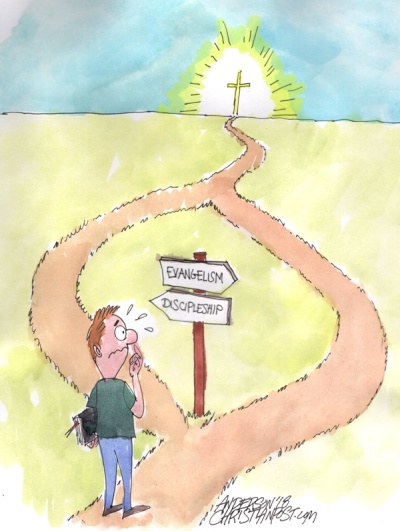Sharing the Gospel with an atheist? Here are some questions that might help
Witnessing to someone who believes that God doesn’t exist (an atheist) can be challenging. A person who doesn’t believe in God will not believe in such things as the resurrection, the Bible (as God’s Word), the deity of Jesus, or any number of other essential Christian doctrines. Reasoning about the Christian faith is difficult when a person rejects the Divine Being who is the foundation of the Christian faith.

To help you move forward in evangelistic conversations with atheists, consider asking one of the following four questions in the course of your conversation:
First, was there a time when you believed in God? God’s existence is evident to all men, even those who reject Him (Romans 1:19). An atheist must suppress the truth of God that is evident in nature (Psalm 19:1). It is likely that there was a time when your atheist friend believed in God. Listening carefully and graciously about the event(s) that led them to change their mind is helpful for two reasons: You can understand the issues that led to their current unbelief, and the atheist reconnects (through their story) to a time before they suppressed the truth of God’s existence.
Second, wouldn’t you like there to be a God? A person is more likely to accept evidence and arguments for things they want to be true rather than things they hope are not true. This question is simple, yet powerful. In evangelism, you are trying to tell someone about a loving creator who, despite our sin, graciously provides all that is needed for us to enjoy eternal life. Wouldn’t you like for that God to exist? Getting a person who doesn’t believe in God to admit that they wish God did exist is a helpful step in asking them to consider the reasons for His existence.
Third, since becoming an atheist, has there been a time when you thought that God might exist? Christians are not the only people who can have a crisis of faith. Exposure to evil can make believers question their belief, and exposure to beauty and charity can make unbelievers question their unbelief. Asking this question is helpful because an atheist has probably gone through a time when they questioned their unbelief, and by inviting them to share that story of a time when they were tempted to believe God might actually exist, you can encourage them to reconsider the existence of God.
Fourth, what would you have to lose if God existed and you decided to trust Him? Seventeenth-century philosopher and mathematician Blaise Pascal famously argued that it makes sense to believe in God because what you stand to gain if He exists is far greater than what you stand to lose if He doesn’t. This argument (called The Wager) leads to a simple question: What do you have to lose? Jesus taught us to count the cost of following Him. There are losses in this life, but as the Apostle Paul point out, the suffering of this life does not compare the to the glory that is to come (Romans 8:18).
Sharing the Gospel can be hard. Asking good questions helps. A good question invites someone to share more about what they believe so that you can wisely and lovingly respond to objections and direct them to Christ. God uses these conversations to open hearts and draw people
Adam Groza (Ph.D.) is a Vice President and Associate Professor of Philosophy of Religion at Gateway Seminary. His new book is Faith Wins: Overcoming a Crisis of Belief (New Hope Publishers, 2020).



























